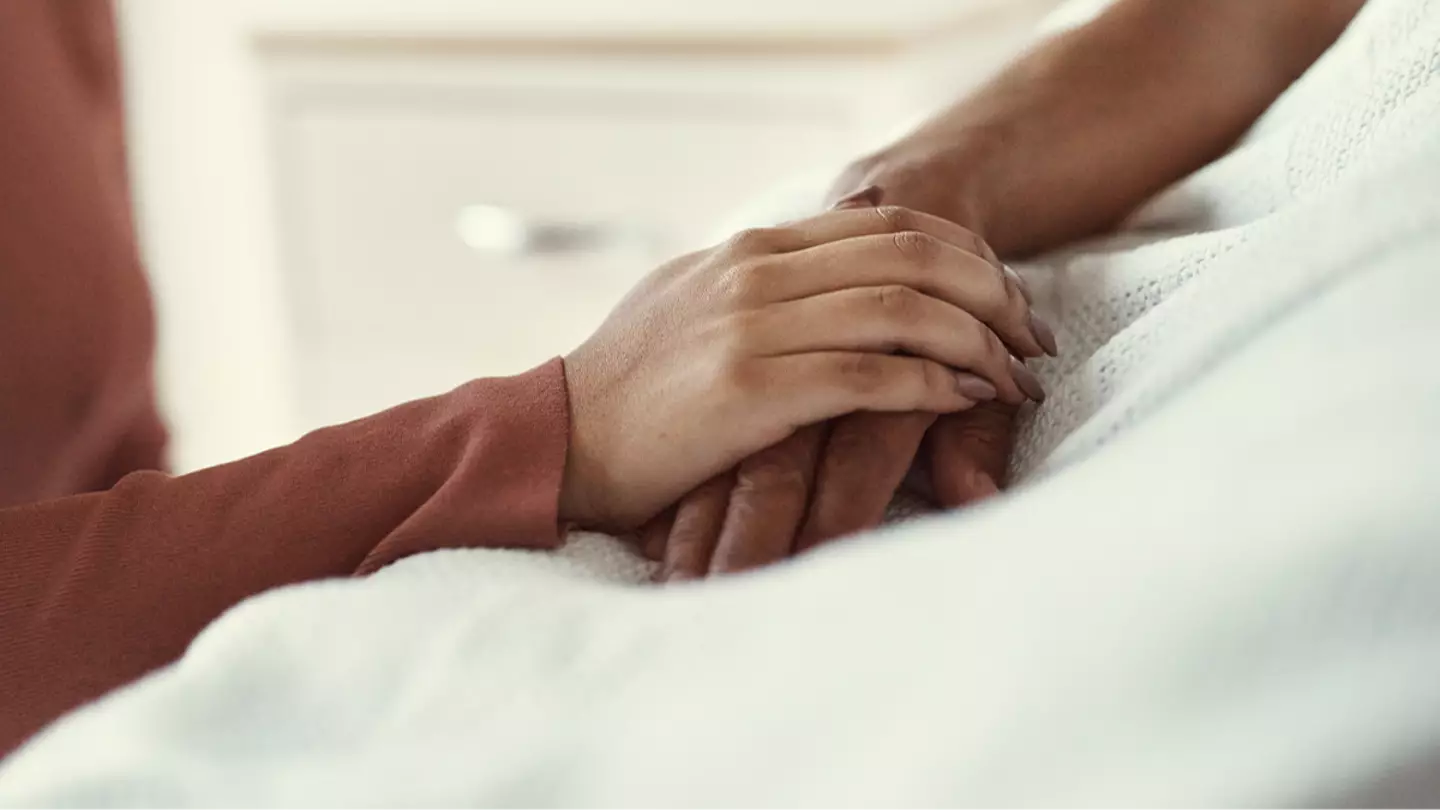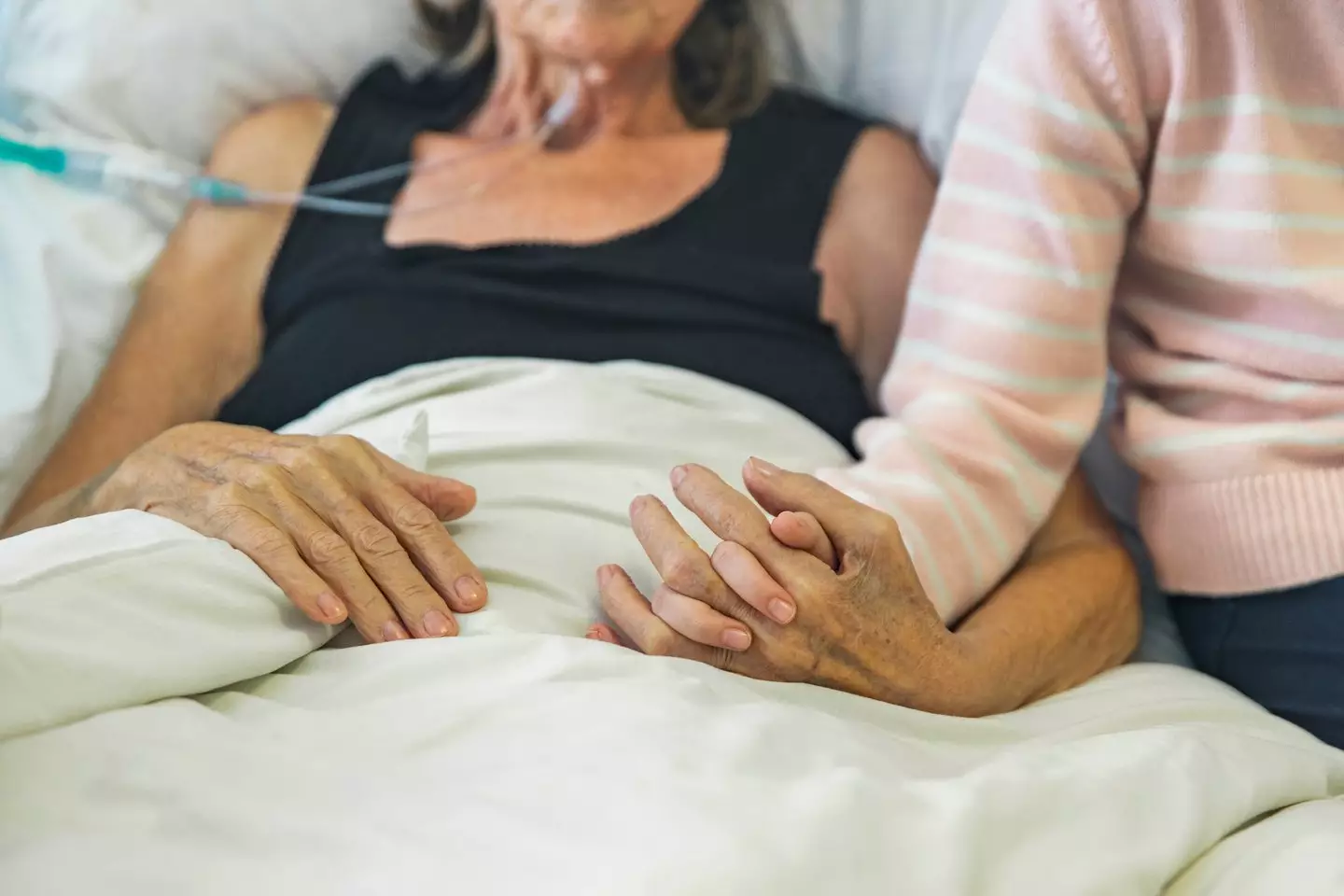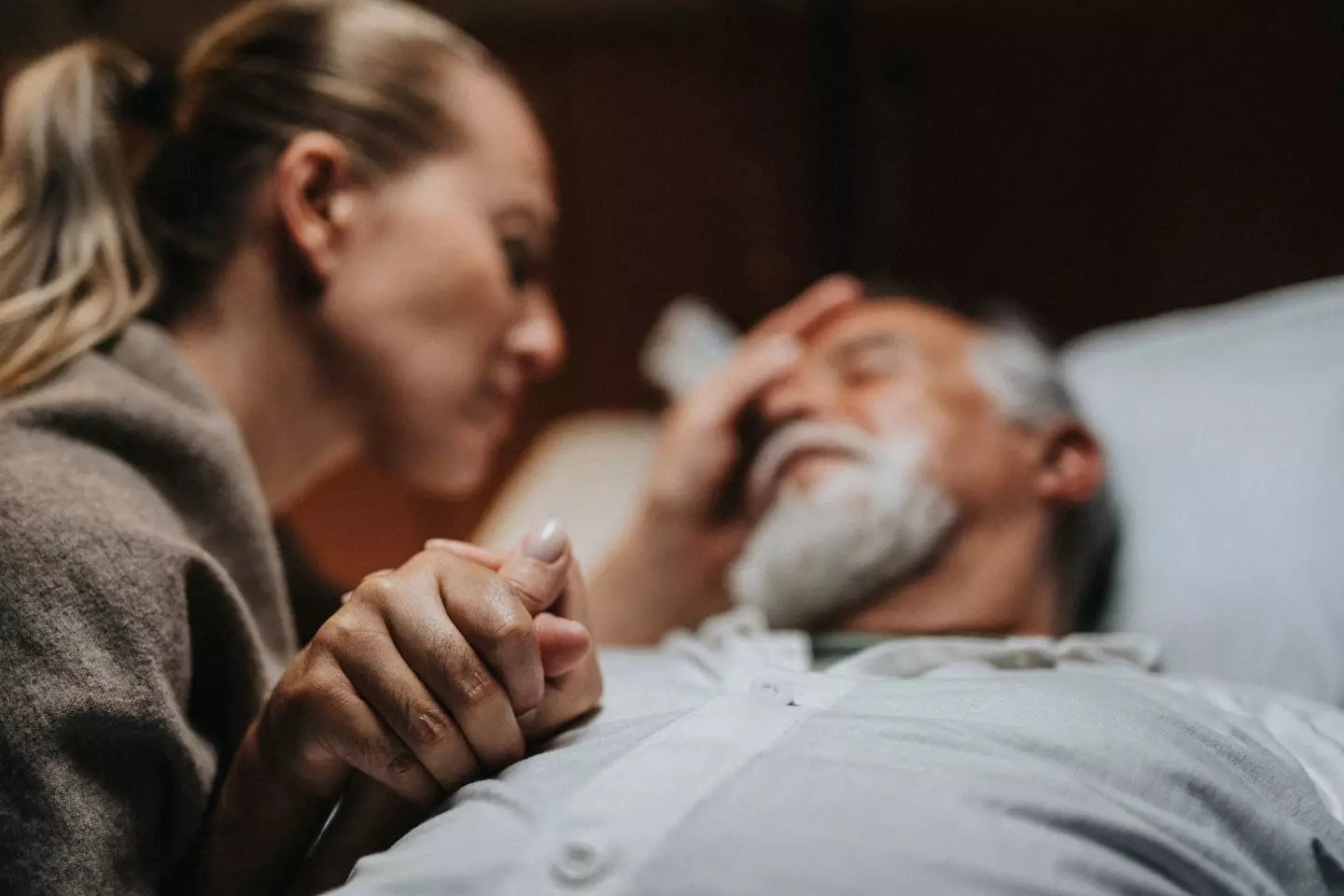
A nurse has revealed there are certain final phrases patients say before they die which is nothing like in the movies.
Approaching the end of our life can sound like a scary experience, though professionals who work in palliative care say in their experiences, the last breath is really nothing to worry about.
Kathryn Mannix, a palliative care doctor and author of With the End in Mind, demystified the experience of death in a TED Talk, stating it is just 'as much a process as the process of giving birth is'.
Now, Julie McFadden, a California-based nurse who goes by Nurse Julie on social media, has similarly sought to ease concerns based on her 16 years of experience working with dying patients.
Advert
While speaking with NHS surgeon and podcaster Dr Karan Rajan, she said sometimes people seem to 'choose when they are going to die'.

"They basically will say, 'I'm going to die after this date' or 'I’ll wait for my daughter's wedding'. I've literally had a patient say; 'I'm dying tonight' and then die even though they weren't actively dying," she said on the Dr Karan Explores podcast.
The nurse confessed she had 'no idea' how this phenomenon occurs, adding: "They did not take anything, they did not do it. I could not believe it... jaw on the floor, like what the heck?"
While this might be comforting to think we might somehow get to 'choose' when we close our eyes for the final time, the hospice nurse has also revealed there are a handful of strangely common phrases people say before their departure.
Speaking to DailyMail.com, she said her patients have called out for lost loved ones, like their parents, who passed long before, or a former lover they hadn't seen in years.
Julie said she's heard her patients peacefully say 'I love you' to those around them, but said it's not anything like it's portrayed on the big screen.
"It's not usually at their last breath. A lot of people think it's like the movies - a dramatic, last proclamation of something they've always regretted or something they always wanted everyone to know. It's not really like that," she said.
She noted 'Thank you,' 'I forgive you', 'Please forgive me' and 'Goodbye' are also other phrases people often say before their death.
In some cases, Julie said patients have been known to switch languages if they're bilingual.

As an example, she explained: "Their first language is Italian but they've been living somewhere where they've been speaking English for 50 years, but when they're getting close to death, they'll revert back to speaking Italian.
"And their family hasn't been hearing them speak Italian for years and years and years and now they'll only speak Italian, or only speak some like random Yiddish language from their hometown that they haven't been to and 80 years or something crazy.
"Sometimes they'll say things that just don't make sense. But sometimes, they don't make sense to us, but they might make sense to them. There'll be saying, 'I just need to go home.'"
As for what 'home' could be, the nurse said it could be 'home' in the afterlife, adding: "People constantly talk about home or going somewhere else, or needing to leave they're going on a trip."
As for any regrets or dying wishes, Julie, whose hospice accommodates terminally ill patients, said: "Speaking with people daily who are dying, the biggest thing is not appreciating their health.
"We take a lot of things for granted - being able to see being able to eat, swallow, walk, live completely pain free. A lot of people say they didn't appreciate that and they wish they would have."
The hospice nurse said many have said they wished 'they didn't work half their life away' and some, usually women, have stated regret about dieting and worrying about their bodies.
If you have experienced a bereavement and would like to speak with someone in confidence, contact GrieveWell on (734) 975-0238, or email [email protected].